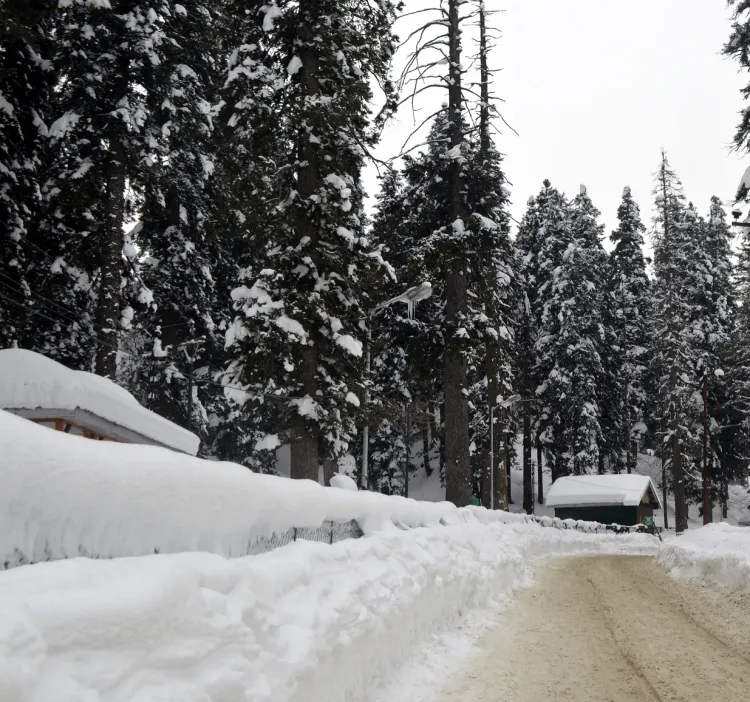New Snowfall Hits Kashmir Valley; Anticipated from January 4-6

Srinagar, Jan 2 (NationPress) New snowfall blanketed the Kashmir Valley on Thursday as the cold wave persisted throughout J&K.
The Meteorological Department has indicated that further rain and snow are expected due to two successive Western Disturbances (WDs) affecting J&K.
A MET department announcement stated, "Due to a weak WD, generally cloudy conditions with light snowfall in scattered locations are anticipated on January 2. On January 3, generally cloudy weather along with light snow is predicted at isolated elevated areas of J&K."
"From January 4-6th, a moderate to strong WD is expected to bring generally cloudy weather with light to moderate rain in the plains of Jammu and snow in most parts of J&K, peaking in activity from the night of January 4th to late night on January 5th, with an improvement anticipated from the late afternoon of January 6th," it added.
The weather service has projected generally dry and cloudy conditions from January 7-10.
Given the recent snowfall and sub-zero temperatures leading to icy road conditions (both in plains and elevated areas), tourists, travelers, and transporters are advised to plan accordingly and adhere to Admin/Traffic advisories, it mentioned.
Heavy snow is forecasted for isolated elevated areas from January 4 to 6.
Srinagar recorded a minimum temperature of minus 2.6 degrees Celsius, while Gulmarg saw minus 8.6 degrees Celsius and Pahalgam recorded minus 4 degrees Celsius on Thursday.
Jammu city noted a minimum of 7.4 degrees Celsius, Katra town at 9 degrees Celsius, Batote at 4.6 degrees Celsius, Banihal at 2.9 degrees Celsius, and Bhaderwah at 1.6 degrees Celsius as the lowest temperatures of the night.
The 40-day intense winter period known as 'Chillai Kalan' commenced on December 21 and will conclude on January 30.
Currently, many lakes and water bodies in the Valley are partially frozen.
Doctors recommend that individuals limit exposure to prolonged cold conditions. Special caution is advised for children and the elderly to protect against cold which can constrict blood vessels, leading to potential myocardial infarction.
"This poses a significant risk for heart attacks and heart failures globally, particularly in colder climates. The danger escalates for patients with respiratory issues," they stated.










